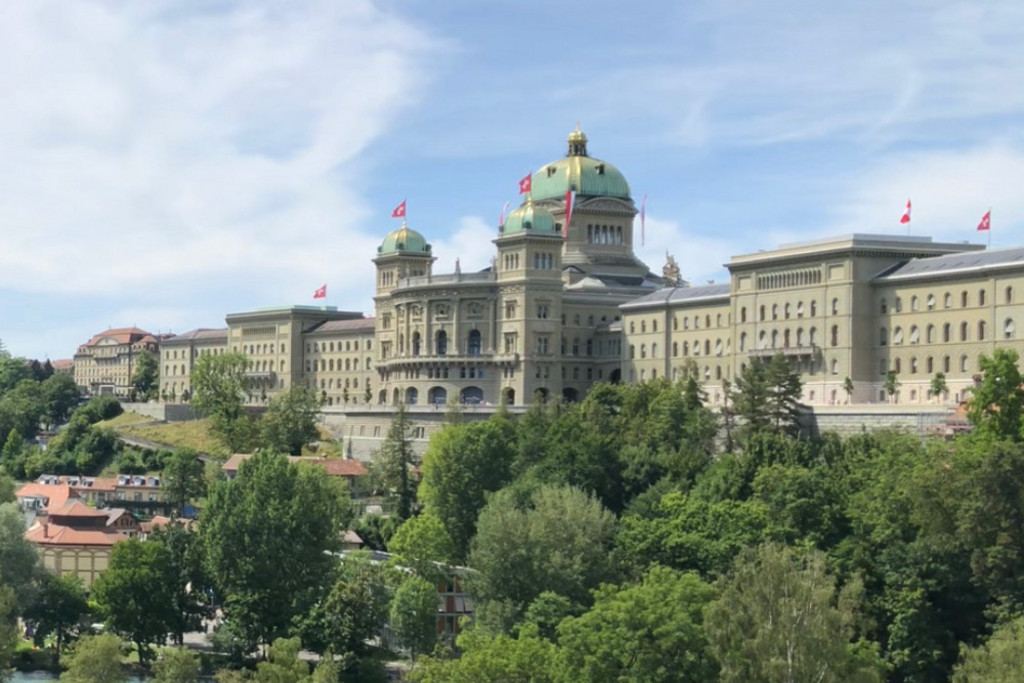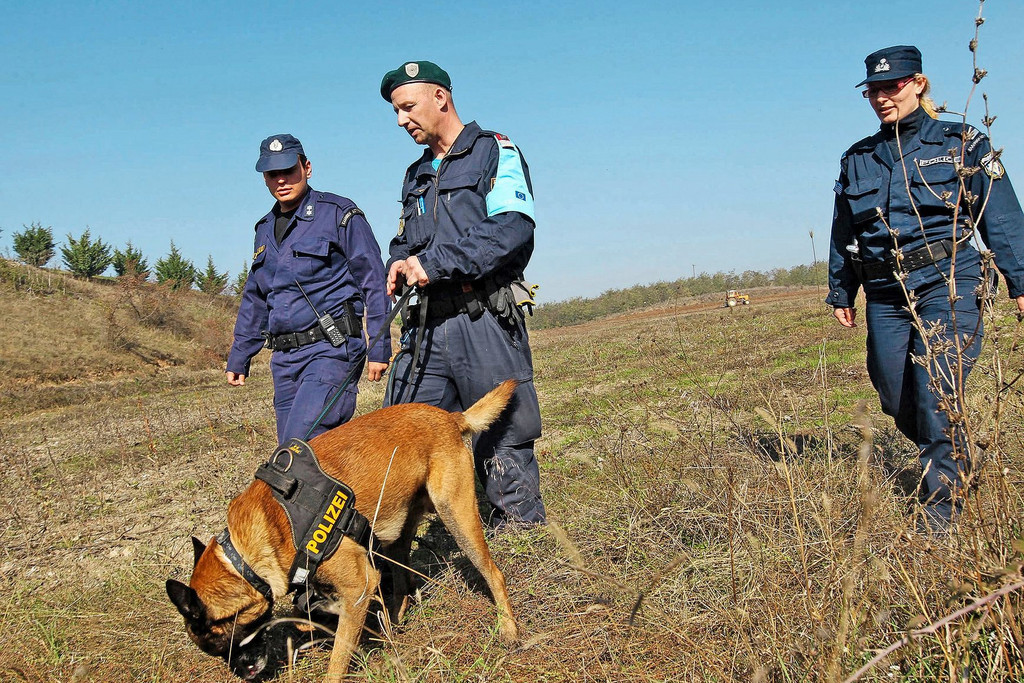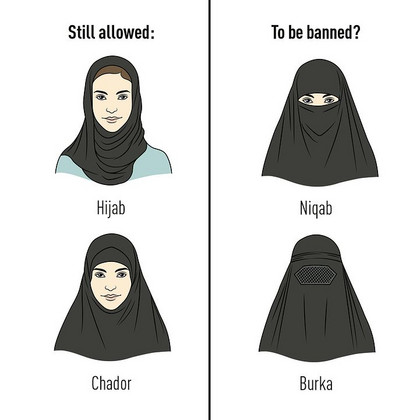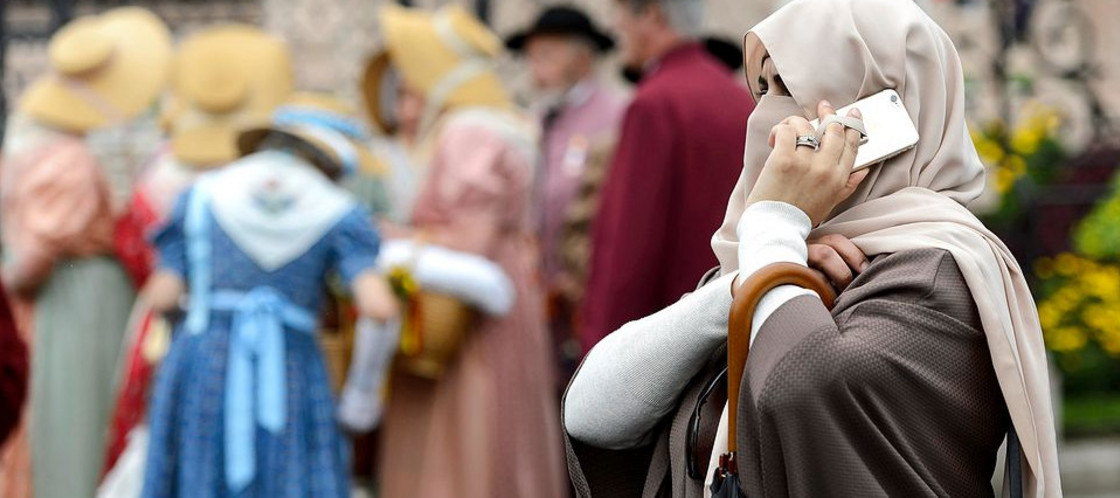The Ticino initiative was down to a man called Giorgio Ghiringhelli, who is now 67 years old and somewhat of a political loner. Ghiringhelli, a former journalist, says that he is alarmed at the “Islamification of Europe”, explaining that the 11 September 2001 terrorist attacks in the USA sparked his activism. “Afterwards, I read essays on Islam by Oriana Fallaci that shook me up.” In 2010, Ghiringhelli launched a petition calling for a ban on full-face coverings, quickly followed by a cantonal popular initiative that was modelled on a similar ban enacted in France. Ticino’s cantonal parliament rejected this effort – concluding that it was a “non-issue”, given that women wearing full-face coverings were practically never seen in the canton.
But Ghiringhelli would not let it go. He refused to withdraw the initiative, insisting that full-face coverings were the “thin end of the wedge”. In his view, the niqab is a symbol of oppression. A majority of Ticino voters chose to back him up. Ghiringhelli also hoped for a copycat effect, and this was actually what happened. The canton of St. Gallen introduced a ban on full-face coverings on 1 January 2019 – again following a popular vote (66.7 per cent in favour). However, Glarus’s annual open-air assembly, the Landsgemeinde, rejected a similar cantonal proposal in 2017. Instead of a canton-wide ban, there were calls in Glarus for a nationwide ruling on the matter.
This is exactly what the “Yes to a ban on face coverings” popular initiative aims at achieve. This initiative is based almost word for word on the legislative text banning full-face coverings in Ticino. It was launched in October 2017 after amassing 105,000 valid signatures. The popular vote is scheduled for March 2021. The Egerkingen Committee, headed by the Lucerne SVP National Councillor Walter Wobmann, is behind the initiative. Its successful anti-minaret initiative in 2009 attracted international attention, because it led to a national ban on the construction of minarets.
The Federal Council and parliament have rejected the Egerkingen Committee’s latest project, saying that it infringes the autonomy of the cantons, while pointing out that very few women in Switzerland wear burkas or niqabs in the first place. According to a government estimate, only 95 to 130 women in the entire country wear full-face coverings.
The debate on banning full-face coverings is also about religious freedom, women’s rights, the right of women to self-determination, dress codes, and the role of Islam in society. Yet there is an economic element as well. Some people say that any ban would have a detrimental impact on tourism, and that regions popular among Arab visitors would lose out as a result.
“An exemption for tourism would not be possible”
said the head of the Federal Department of Justice and Police, Karin Keller-Sutter, during the parliamentary debate.
To date, only a very small handful of fines have been issued in Ticino against women wearing full-face coverings. Nearly all of these were picked up by Nora Illi – the controversial co-founder of the Swiss Central Islamic Council who deliberately showed up in the canton wearing a full-face veil in protest. Illi, a Swiss convert to Islam, died in March 2020. Meanwhile, St. Gallen cantonal police say that they have not imposed a single fine yet for similar infractions.
The Ticino police have produced leaflets explaining the ban in English and Arabic. However, some tourists have circumvented the ban by swapping their veils for a ubiquitous symbol of the COVID-19 pandemic: medical face masks. This trend has been notable among visitors to the open-air miniature model museum Swissminiatur, a venue popular among Arabs. Despite this, the effect on tourism appears to be minimal. “The so-called burka ban has had zero impact from our point of view,” says Giuseppe Rossi, general manager of Hotel Splendide Royal, a luxury five-star venue situated on the shores of Lake Lugano. Since the introduction of the ban, the proportion of Arab guests at the hotel has remained the same.





![[Translate to en:]](/fileadmin/_processed_/d/2/csm_Revue_202204_Huehnerfarm_SH-Reportage_3074_7901ca94df.jpg)






Comments
Comments :
Wie schon damals als Bürgerin des Kantons Tessin werde ich auch eine schweizweite Vorlage zum Verbot der Gesichtsverschleierung jeder Art gutheissen. Niemand soll sein Gesicht hinter einem Schleier verstecken müssen oder gewollt können.